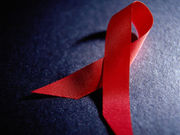New national report highlights groups most at risk for the AIDS-causing virus
WEDNESDAY, Feb. 24, 2016 (HealthDay News) — If current HIV rates continue, about half of black men who have sex with men (MSM) in the United States will be diagnosed with the virus in their lifetime, according to a study scheduled to be presented at the annual Conference on Retroviruses and Opportunistic Infections, held from Feb. 22 to 25 in Boston.
Using diagnoses and death rates from 2009 to 2013, U.S. Centers for Disease Control and Prevention researchers projected lifetime risk of HIV diagnosis by sex, race and ethnicity, state, and more. The nation’s HIV epidemic still affects MSM the most. CDC researchers predict that one in six will be diagnosed with HIV in their lifetime. For black MSM, the rate is one in two; for Hispanic MSM, one in four; and for white MSM, one in 11, the CDC said.
In general, black people have the greatest lifetime HIV risk — one in 20 for men and one in 48 for women, the analysis showed. The overall lifetime HIV infection rate in white men is one in 132, while for white women, it’s one in 880. Others at high risk include injectable drug users, particularly women who inject drugs. Southerners also have greater odds of a lifetime HIV diagnosis compared to other Americans, according to the report. Residents of the nation’s capital face the worst odds — one in 13 for those in Washington, D.C. — followed by one in 49 in Maryland, and one in 51 in Georgia.
“As alarming as these lifetime risk estimates are, they are not a foregone conclusion. They are a call to action,” Jonathan Mermin, M.D., director of the CDC’s National Center for HIV/AIDS, Viral Hepatitis, STD, and Tuberculosis Prevention, said in an agency news release. “The prevention and care strategies we have at our disposal today provide a promising outlook for future reductions of HIV infections and disparities in the United States, but hundreds of thousands of people will be diagnosed in their lifetime if we don’t scale up efforts now.”
Copyright © 2016 HealthDay. All rights reserved.








